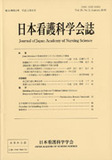Japanese
English
- 販売していません
- Abstract 文献概要
- 参考文献 Reference
We would like to thank Dr. Underwood for sharing her ideas about culture, knowledge and convergence (1999). Her thoughts have stimulated lively dialogue between us and inspired us to respond. We have been working together for three years to establish a research program, which can be shared with practicing Japanese nurses and can be extended across cultures. Over this three year period, we have had many opportunities to exchange perspectives from our differing worldviews, and to shape a direction for research which honors each perspective while enabling forward movement. In this paper, we will share our thoughts about Underwood's ideas, expressed in “Universal problems-cultural solutions” (1999). Our thinking has been guided by the works of Micheal Polanyi (1958; 1966), and is being offered in the spirit of collegial dialogue.
There are two major questions, and one additional central issue, which are central to this continuing dialogue. First, we question whether tacit knowledge can be converted to explicit knowledge. Second, we question whether tacit and explicit knowing can be attributed differentially based on cultural identity. Each of these questions will be briefly elaborated, and finally, we will comment on the issue of congruence between explicit knowledge and embedded culture.
We would like to thank Dr. Underwood for sharing her ideas about culture, knowledge and convergence (1999). Her thoughts have stimulated lively dialogue between us and inspired us to respond. We have been working together for three years to establish a research program, which can be shared with practicing Japanese nurses and can be extended across cultures. Over this three year period, we have had many opportunities to exchange perspectives from our differing worldviews, and to shape a direction for research which honors each perspective while enabling forward movement. In this paper, we will share our thoughts about Underwood's ideas, expressed in “Universal problems-cultural solutions” (1999). Our thinking has been guided by the works of Micheal Polanyi (1958; 1966), and is being offered in the spirit of collegial dialogue.
There are two major questions, and one additional central issue, which are central to this continuing dialogue. First, we question whether tacit knowledge can be converted to explicit knowledge. Second, we question whether tacit and explicit knowing can be attributed differentially based on cultural identity. Each of these questions will be briefly elaborated, and finally, we will comment on the issue of congruence between explicit knowledge and embedded culture.
Copyright © 2000, Japan Academy of Nursing Science. All rights reserved.


